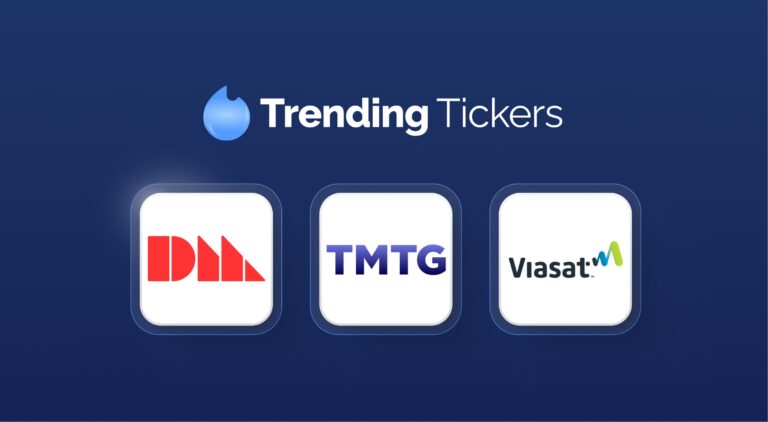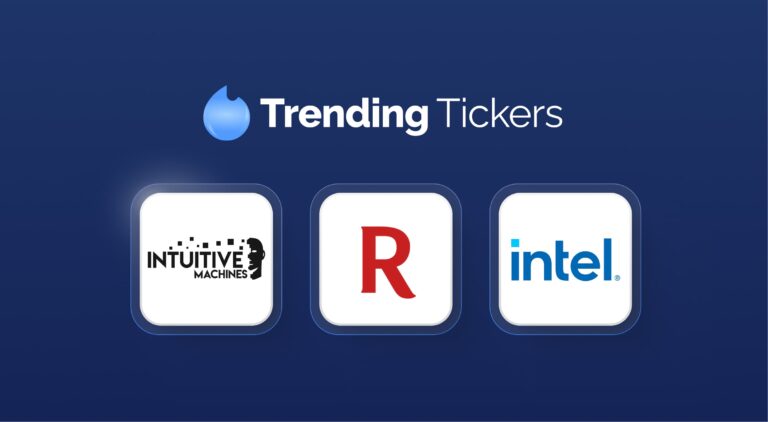S&P 500: The Winners and Losers of January 2025
Some traders believe that January sets the tone for the stock market for the rest of the year. January proved to be a positive month for the S&P 500, with the index gaining 2.8%. In this article, we’ll discuss the top and worst performers in the S&P 500 over the past month, along with the factors driving the stock price movements of each company.
Top S&P 500 Performers in January
Among the top performers were Constellation Energy Corp ($CEG), CVS Health Corp ($CVS), and GE Aerospace ($GE). Here’s a closer look at why each of these stocks stood out in January:
1. Constellation Energy Corp ($CEG) +34.1%
Constellation Energy ($CEG), a clean energy company focused on providing carbon-free energy solutions, emerged as the best-performing stock in January, gaining 34.09%. Despite a significant drop at the end of the month, triggered by the release of China’s DeepSeek model (which impacted several stocks, including those in the energy sector), the stock maintained strong momentum throughout the month.
Factors Driving the Stock Increase:
- $1 Billion Federal Contracts: Constellation secured a landmark 10-year, $840 million deal to supply carbon-free energy to 80 federal facilities, alongside a complementary $172 million energy efficiency contract for GSA-owned buildings. These agreements significantly strengthen CEG’s role in the clean energy transition and provide predictable revenue streams. Details here.
- Acquisition of Calpine: The company also announced its acquisition of Calpine in a $16.4 billion stock and cash transaction, further solidifying its leadership in clean energy. This acquisition, which includes 50 million shares of Constellation stock, $4.5 billion in cash, and the assumption of approximately $12.7 billion in Calpine’s net debt, is expected to be immediately accretive to earnings and cash flow.
- AI-Fueled Rally: The intersection of artificial intelligence and energy consumption emerged as a significant catalyst for Constellation’s performance. The company benefited substantially from growing speculation about increased energy demand from data centers supporting the AI infrastructure boom. While the release of Chinese company DeepSeek’s energy-efficient model briefly impacted the stock, causing a temporary 20% decline near month-end, Constellation still managed to gain 34% in January.
2. CVS Health Corp ($CVS) +25.8%
Healthcare company CVS Health ($CVS), which operates a network of healthcare services and retail pharmacies across the U.S., finished January as the second-best performing stock in the S&P 500, gaining 25.82% for the month. Despite a challenging few years marked by management changes and internal struggles, CVS managed to make a significant rebound. The company has faced several difficulties, including exploring the possibility of breaking up the business into smaller parts. CVS has also struggled with forecasting, frequently missing expectations and repeatedly lowering its guidance. This lack of stability has eroded investor confidence, and by the end of 2024, the stock had declined by 40%.
Factors Driving the Stock Increase:
$CVS did not have any major announcements in January, and its stock increase was primarily driven by a rebound from the sharp selloff at the end of 2024. While the rally was largely a recovery, several smaller developments contributed to investor optimism.
- Dividend Announcement: Early in the month, CVS announced that its board of directors approved a quarterly dividend of 66 cents per share, to shareholders of record as of January 23, 2025.
- California Wildfire Impact: The recent Los Angeles wildfires may have also contributed to the stock’s rise, as speculation grew about increased demand for healthcare services, medical supplies, and pharmaceuticals. With over 1,000 pharmacies in California, CVS was viewed as well-positioned to meet these needs.
3. GE Aerospace ($GE) +22%
GE Aerospace, a division of General Electric specializing in jet engines, aerospace systems, and services, saw a notable increase in its stock price during January 2025, climbing by as much as 22%, making it one of the top three S&P 500 gainers of the month. The stock has been on a recovery path in recent months, following strategic changes and the spin-off of its GE Vernova ($GEV) energy business. While the overall positive trend in the aviation sector contributed to the rise, the main drivers behind this surge were strong financial results and a promising outlook shared during the company’s January earnings release.
Factors Driving the Stock Increase:
- Strong Financial Performance and Upbeat Outlook for 2025: GE Aerospace posted earnings of $1.32 per share on $10.8 billion in sales for the fourth quarter, surpassing expectations. The company’s outlook for 2025 further fueled investor optimism, with projections for double-digit revenue and earnings growth, along with strong free cash flow. CEO Larry Culp highlighted the company’s ability to accelerate production and meet customer demands as a key factor for continued growth.
- Increased Orders: The company reported a 46% year-over-year increase in orders during the fourth quarter, indicating robust demand for its products and services.
- Dividend Increase and Share Repurchases: GE Aerospace announced a 30% increase in its dividend and plans to repurchase up to $7 billion worth of shares, further demonstrating the company’s commitment to returning value to shareholders.
Worst S&P 500 Performers in January
January was a tough month for several major companies, with Edison International ($EIX), PG&E Corp. ($PCG) and Constellation Brands ($STZ) all seeing sharp declines in their stock prices. Here’s why each of these stocks took a hit.
1. Edison International ($EIX) -32.36%
Edison International ($EIX), the parent company of Southern California Edison, experienced the largest drop in the S&P 500, falling 32.36% in January. The stock was negatively impacted by concerns over California power shutdowns and ongoing investigations into the company’s role in wildfire prevention, causing investors to grow increasingly wary.
Several factors contributed to this decline:
- Wildfire impact: California’s wildfires caused significant disruptions to the company’s operations, including widespread power outages. At the peak of the extreme weather event, 413,639 SCE customers were without power.
- Ongoing investigation: Southern California Edison (SCE) has come under intense scrutiny due to its potential involvement in the Eaton and Hurst wildfires, which began on January 7, 2025. While the cause of the Eaton Fire has not yet been determined, the investigation is ongoing. New information, including external videos, suggests a potential link to SCE’s equipment.
2. PG&E Corp. ($PCG) -22.45%
PG&E Corp ($PCG) a utility company providing natural gas and electricity to Northern California, saw its stock plunge 22.45% in January. Similar to Edison International ($EIX), PG&E’s stock was heavily impacted by the California wildfires during the past month. The decline stemmed from ongoing concerns over the company’s safety record and its role in causing devastating wildfires in recent years. Despite efforts to improve safety measures, PG&E continues to face significant regulatory challenges and legal battles, which have created uncertainty about its long-term financial stability. These issues ultimately contributed to the sharp sell-off in January.
3. Constellation Brands ($STZ) -18.19%
Constellation Brands ($STZ), known for its portfolio of alcoholic beverages, including the popular beer brand Corona, saw a significant drop in its stock price during January. As consumer demand weakened in some of its key markets, investors grew increasingly cautious about the company’s future growth prospects. The stock ended the month down 18.19%.
Disappointing Earnings Announcement
The primary reason behind the stock decline was the company’s most recent earnings report, released on January 10. Key factors contributing to the negative performance included:
- Lowered Guidance – Constellation Brands revised its fiscal 2025 outlook, reducing projections for net sales, operating income, and earnings per share (EPS) across the business. This revision signaled broader challenges ahead.
- Core Beer Business Concerns – The company’s largest segment, beer, showed worrying signs of slowing growth. With only 3.2% depletion growth, declining margins, and management citing “subdued spend and value-seeking behaviors” among consumers, there were concerns about future growth in this key market.
- Severe Wine & Spirits Weakness – The wine and spirits segment experienced dramatic declines, with sales dropping 14%, shipments falling 16.4%, and operating income dropping 25%. Management expressed uncertainty about when consumer spending in this category would normalize.
This article is for informational purposes only and is not investment advice or a solicitation to buy or sell securities. The content is based on publicly available information and reflects the author’s opinions as of the publication date, which may change without notice. All investments carry inherent risks, including the potential loss of principal, and past performance is not indicative of future results. Readers should conduct their own research or consult a financial advisor before making investment decisions. BBAE holds no position in the securities mentioned, nor are they compensated by the companies mentioned.














